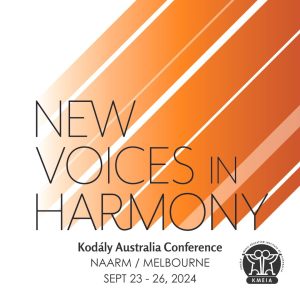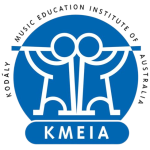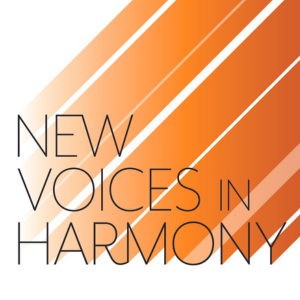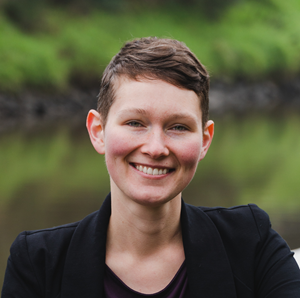Thinking outside the box:
Thinking Outside the Box:
Five Sessions to Challenge and Extend your Practice
With the theme New Voices in Harmony the 2024 Kodály Australia Conference is on a mission to shake things up a bit!
Alongside tried-and-true approaches to pedagogy, repertoire, singing and connecting with music, this year’s conference is brimming with opportunities to challenge and extend your idea of what Kodály-inspired teaching can be.

Here are just five examples of conference sessions that will get you thinking, teaching, singing and moving outside-the-box.
In a conference first, there will be a session every day dedicated to learning the Kokas approach, led by Kata Körtvési (Hungary). Klára Kokas was a student of Zoltan Kodály and developed her own set of pedagogies, in line with the Kodály’s philosophies on music education. The Kokas approach features intense listening to quality music and responding in natural and physical ways, such as through dance improvisation, imaginative stories, painting and drawing. Kokas sessions are creative, beautiful and moving, and it will be a treat to be guided by one of Hungary’s foremost Kokas practitioners.
Tracy Wong, Candace Kruger, Ed Le Brocq
Moderated by Andrew Pennay
Hear from three of our exciting Keynote Presenters discussing access to and content of music education in our schools and communities.
- What are barriers to music education?
- How do we honour the diversity of the students in front of us?
- What are the compromises we have to make?
- What are our goals for inclusive music education?
Bring your burning questions and a desire to address uncomfortable topics.
Western harmony is dead: Re-constituting notions of harmony, from Confucius to Daft Punk – Andrew Pennay
What the world needs now is love, sweet love… and a better conceptualisation of harmony. Through a brief survey of Eastern and Western philosophical positions, both ancient and modern, it becomes possible to characterise Western notions of music harmony as narrowly defined, dated, ethno-centric, and Euro-centric. A bold re-constitution of harmony—more culturally inclusive and applicable to the broad range of musics we perform in music classrooms—helps music teachers fend off elementised, compartmentalised, constricted views of music harmony.
(And check out Andrew’s other sessions too: Dancing on the ceiling: Valuing other perspectives in the music classroom and If curiosity killed the cat, who killed curiosity?)
Afro-Cuban Music: A Kodaly Inspired Approach – Simon Ranguis
The session will explore of key elements of Afro-Cuban music by applying a Kodály inspired approach in their teaching using time-names and solfege. Students will gain an understanding of the socio/cultural context giving rise to the genre known as ‘Afro-Cuban music’. Core rhythmic patterns (ostinato) will be explored, including: the ‘Clave’ (guiding pattern) ; ‘Tumbao’ (Bass ostinato based on pilar tones); and ‘Montuno’ (syncopated arpeggiated pattern). Students will apply their knowledge of solfege and time names to explore musical examples prior to transferring their learning to class percussion. Finally, a simple call and response will be established and the concept of ‘Pregon’ and melodic improvisation introduced.
Music Without Barriers: Found Percussion for Everyone – Kaboom Percussion
Join Kaboom Percussion founders Cat and Josh as we take you through our strategies for engaging students and developing musical skills through the use of found percussion. We love showing students that music is for everyone, and we firmly believe that one of the best ways to do this is by making music with simple household items. Found percussion promotes inclusivity by removing barriers for individuals of all ages, abilities, and socio-economic backgrounds. In this hands-on workshop, we will share some of our favourite tried-and-tested activities which explore rhythm, coordination, teamwork, and the joy of performance. Come have some fun making music together with exercises you’ll be able to use in your classroom immediately!



